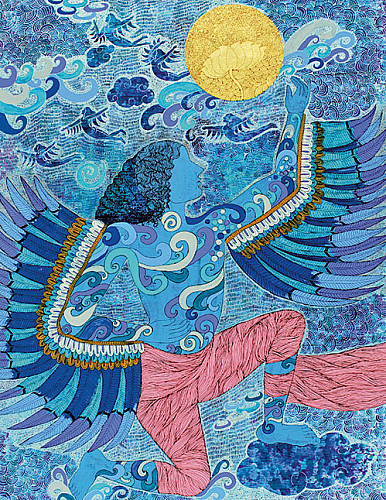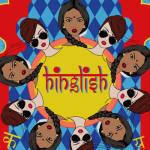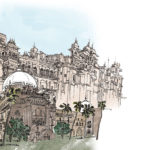#TheHybridLife: Author Amish Talks About A Fusion Of Cultures

Fusion of cultures cannot occur in silos. If different cultures don’t interact with each other, how will they learn and be influenced by one another? The current wave of globalisation is triggering many of the forces driving this fusion, but it is qualitatively different from the earlier ones. And the impact it is having on cultures is also qualitatively different. How so?
There have been many waves of globalisation in history. In this millennium, two of the biggest were the Mongol/Turkic conquest-driven one between the 12th and 14th centuries, and the wave triggered by European colonialism from the 18th century onwards. The third, of course, is the age of globalisation we are living in.
The previous globalisation efforts were, regrettably, quite violent. For example, the Mongol/Turkic conquests did lead to increased trade and movements of people. But, often these were forced, either through slavery (many Indians and Africans were victims of this) or ethnic cleansing (victims were of European and Arab descent). Globalisation that was driven by European Colonialists was also accompanied by massive violence (e.g. the mass extermination of millions of Native Americans).
In this paradigm of globalisation, there was clearly a dominant group and a dominated group. Fusion of cultures in this case would be expected to be one way — from the dominant to the dominated. There were interesting exceptions though. As Ibn Khaldun, a Tunisian intellectual of the 14th century, has noted, sometimes, when an urbane civilisation is conquered by a more unsophisticated people, the conquerors in turn absorb the lived culture of the defeated people, who may be more refined in their arts, philosophy and thoughts. This happened when the Arabs conquered the remarkable Persian civilisation in the seventh or eighth century.
The present wave of globalisation has dramatically increased the phenomenon of fusion of cultures in a positive way. To begin with, it has not been accompanied by the violence of the previous examples. While there is mass movement of people, it is now driven by voluntary immigration rather than forced slavery (the tragic movement of migrants away from the cauldron of woes in the Middle East is still a small proportion of the global movement of people). An immigrant will, obviously, be far more confident of his own culture than a conquered people. The current wave is also unique in terms of its dispersion of power, which is defined by wealth and achievement. Besides the European/Europeanised cultures, many East Asian countries, first led by Japan, and now driven by China, Korea and others, have wealth today and are successful in establishing their power in global politics. Many Middle Eastern countries, largely driven by oil wealth, have also exercised their share of power.
The Indian Subcontinent is finally retaking its place in the global community of nations after a few centuries of decline. Africa, driven to some extent by South Africa, Nigeria and Kenya, is also showing promise. This wave will be far more equal (though not enough, I admit) than the earlier waves of a clear dominant-group-driven narrative.
The impact on the fusion of cultures has been and will be profound. It is not unusual today to enjoy the cuisines of numerous countries in India. It is so in many other countries as well. Indian cuisine is among the most popular cuisines around the world (interesting point here: many of the ‘Indian’ restaurants in the UK are actually owned by Bangladeshis!). Even more remarkably, ‘fused cuisines’ are emerging. We get paneer pizzas here and anglicised curries in the UK (which most Indians would find very bland). This openness toward the food habits of other cultures is a recent phenomenon. Food habits are one among the core building blocks of culture. And here we are, celebrating fusion in food. During my travels in the US for a fellowship programme last year, I noted the number of shisha bars there, even though the Arabs are a tiny minority in the US. Korean pop has taken the world by storm and is actually influencing global music. American movies are popular the world over, and dubbed versions are doing roaring business in semi-urban India. Crossover movies are pretty common these days. This wave of globalisation has far more intermingling among cultures than the previous ones and the fusion is far more equal.
Will this fusion impact religious practice as well? I don’t know. In Europe, one finds that within one generation, large masses of people have moved from Christianity to atheism. Sadly, much of this atheism is militant and intolerant (though not violent), rejecting much of the good in Christianity as well. In the US, you find a growing number of atheists and non-denominational people, but the American South is dominated by deeply religious people. In my tours through this region, I didn’t find many Christians willing to accept that idol-worshipping religions like Hinduism could also have some philosophical insights that could aid spiritual journeys; yoga, though bewilderingly popular, is a controversial topic among many. It’s difficult to talk about religious pluralism in the Middle East.
I think India can teach the world a lot on the fusion of religious principles and mutual religious respect. For example, Hindus and Muslims commonly visit Christian churches in India. Many Muslims and Christians celebrate Hindu festivals like Diwali and Raksha Bandhan. Many Hindus visit the tombs of Muslim Sufi saints. There are many in India, of all religious denominations, who practise Nichiren Buddhism. Many Hindus celebrate Christmas at home (as my family did and still does). The book Muslim Devotees of Krsna by Dipankar Deb is enlightening.
Indians truly reflect what Swami Vivekananda said about us: we believe that all religions are true. If the world can accept that nobody has a monopoly on truth and that there is something to be learnt from every faith, wouldn’t we be living in a much more peaceful and happy world?
We Indians should teach the world this philosophy. It is our duty towards humanity. Ekam sat vipraha bahuda vadanti. Truth is one, but the wise men speak it as many.
Related posts from Verve:
Verve Trending
Sorry. No data so far.
us on Facebook to stay updated with the latest trends





